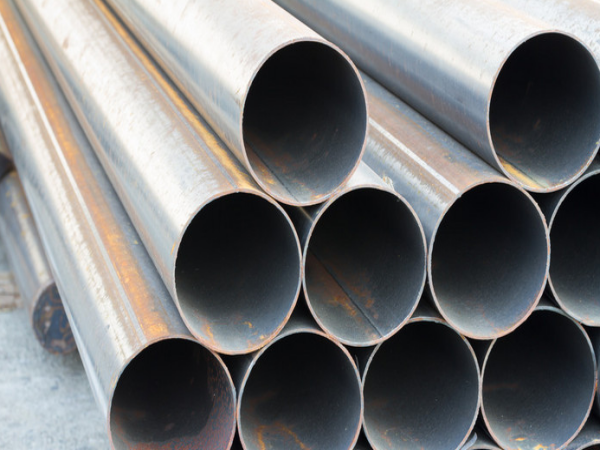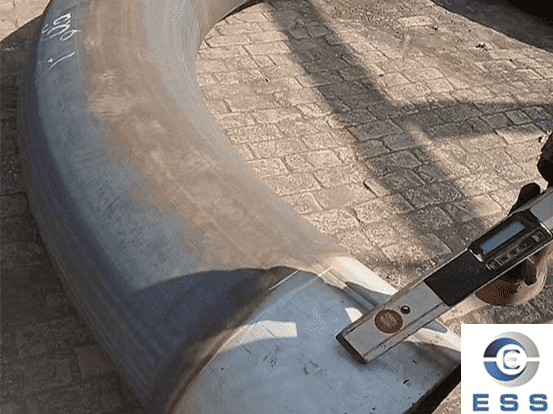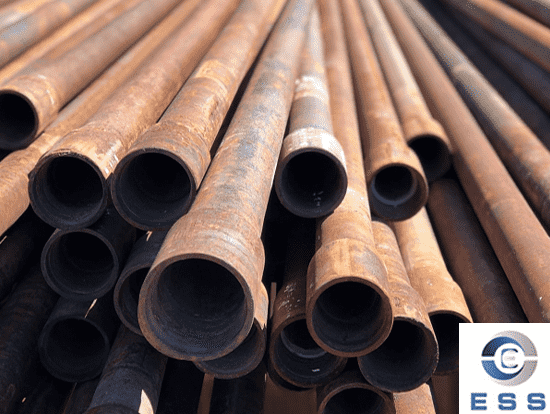How to Identify High-Quality Carbon Steel Pipe
Carbon steel pipes are widely used in a variety of applications, from transportation of fluids and gases to structural purposes in buildings and infrastructure. However, not all carbon steel pipes are created equal. Some are of higher quality than others, and it is important to know how to identify high-quality carbon steel pipes to ensure that your project is successful and meets the necessary standards. In this article, we will go over the characteristics of high-quality carbon steel pipes and provide tips on how to identify them.

What is Carbon Steel Pipe?
Carbon steel is a type of steel that contains carbon as its main alloying element. It is a common material used in the manufacturing of pipes due to its strength, durability, and affordability. Carbon steel pipes come in a variety of sizes, shapes, and grades, and are used in a wide range of applications such as oil and gas pipelines, water supply systems, and structural supports.
Carbon steel pipes are generally classified into two categories: seamless and welded. Seamless pipes are made from a solid piece of steel, while welded pipes are made by welding pieces of steel together. The manufacturing process for seamless pipes is more complex and expensive than that of welded pipes, but they are generally considered to be of higher quality due to their uniformity and lack of welds.
Characteristics of High-Quality Carbon Steel Pipe
When it comes to carbon steel pipes, quality is key. High-quality carbon steel pipes are characterized by their durability, strength, and resistance to corrosion. Here are some of the key characteristics to look for when identifying high-quality carbon steel pipes:
Strength
One of the most important characteristics of high-quality carbon steel pipes is their strength. Carbon steel pipes are known for their strength and durability, but not all pipes are created equal. High-quality carbon steel pipes are able to withstand high pressure, extreme temperatures, and heavy loads without bending, cracking, or breaking.
Durability
Another important characteristic of high-quality carbon steel pipes is their durability. High-quality carbon steel pipes are able to withstand exposure to harsh environments, chemicals, and corrosive substances without deteriorating or losing their strength. They are also resistant to abrasion, erosion, and wear and tear.
Corrosion Resistance
Corrosion is a major issue when it comes to carbon steel pipes, especially in environments with high levels of moisture, salt, or acidic substances. High-quality carbon steel pipes are able to resist corrosion, rust, and other forms of degradation caused by exposure to these substances. They are also able to resist pitting and crevice corrosion, which can weaken the pipe over time.
Uniformity
High-quality carbon steel pipes are uniform in their composition and structure. They are manufactured using a consistent process that ensures the pipes have the same wall thickness, diameter, and other dimensions throughout their length. This ensures that the pipes are able to handle the same amount of pressure and load at any point along their length.
Weld Quality
Welded carbon steel pipes are made by welding pieces of steel together. The quality of the weld is a critical factor in determining the overall quality of the pipe. High-quality carbon steel pipes have welds that are strong, uniform, and free from defects such as porosity, cracking, or lack of fusion.
Surface Finish
The surface finish of a carbon steel pipe is another important factor to consider when evaluating its quality. High-quality carbon steel pipes have a smooth, clean surface finish that is free from defects such as scratches, pits, or roughness. A smooth surface finish reduces friction and makes it easier to clean and maintain the pipe.
How to Identify High-Quality Carbon Steel Pipe
Now that we've covered the characteristics of high-quality carbon steel pipes, let's take a look at some tips on how to identify them.
1.Look for Certifications
One of the easiest ways to identify high-quality carbon steel pipes is to look for certifications. High-quality carbon steel pipes are often certified by industry standards organizations such as ASTM International, the American Petroleum Institute (API), or the International Organization for Standardization (ISO). These certifications indicate that the pipes have been manufactured according to strict quality standards and have been tested to ensure their durability, strength, and corrosion resistance.
2.Check the Material Grade
Carbon steel pipes are available in a variety of grades, each of which has its own unique properties and characteristics. When evaluating carbon steel pipes, it's important to check the material grade to ensure that it is appropriate for your application. Higher-grade materials generally indicate higher quality and better performance. Common material grades for carbon steel pipes include ASTM A106, ASTM A53, API 5L, and A333.
3.Inspect the Surface Finish
As mentioned earlier, the surface finish of a carbon steel pipe is an important factor in determining its quality. When inspecting a carbon steel pipe, look for a smooth, clean surface finish that is free from defects such as scratches, pits, or roughness. A rough surface finish can indicate poor manufacturing quality or damage caused during shipping or handling.
4.Measure the Wall Thickness and Diameter
The wall thickness and diameter of a carbon steel pipe are important factors in determining its strength and durability. When evaluating a carbon steel pipe, use a caliper or other measuring tool to measure the wall thickness and diameter at several points along the length of the pipe. The wall thickness and diameter should be consistent throughout the length of the pipe, indicating that it was manufactured using a consistent process.
5.Check for Weld Quality
If you are evaluating a welded carbon steel pipe, inspect the weld quality to ensure that it is strong, uniform, and free from defects such as porosity, cracking, or lack of fusion. Weld defects can weaken the pipe and make it more susceptible to corrosion and failure over time.
6.Evaluate Corrosion Resistance
Corrosion is a major issue when it comes to carbon steel pipes, especially in harsh environments or when transporting corrosive substances. To evaluate the corrosion resistance of a carbon steel pipe, look for coatings or treatments that have been applied to the surface of the pipe. High-quality carbon steel pipes may have coatings such as epoxy, polyethylene, or zinc to protect against corrosion.
Conclusion
Carbon steel pipes are an important component in a wide range of applications, from transportation of fluids and gases to structural supports in buildings and infrastructure. Identifying high-quality carbon steel pipes is essential to ensuring the success of your project and meeting the necessary standards. High-quality carbon steel pipes are characterized by their strength, durability, and resistance to corrosion. When evaluating carbon steel pipes, look for certifications, check the material grade, inspect the surface finish, measure the wall thickness and diameter, check for weld quality, and evaluate corrosion resistance. By following these tips, you can ensure that you are selecting the best possible carbon steel pipes for your application.













 Eastern Steel Manufacturing Co.,Ltd not only improve product production and sales services, but also provide additional value-added services. As long as you need, we can complete your specific needs together.
Eastern Steel Manufacturing Co.,Ltd not only improve product production and sales services, but also provide additional value-added services. As long as you need, we can complete your specific needs together.










